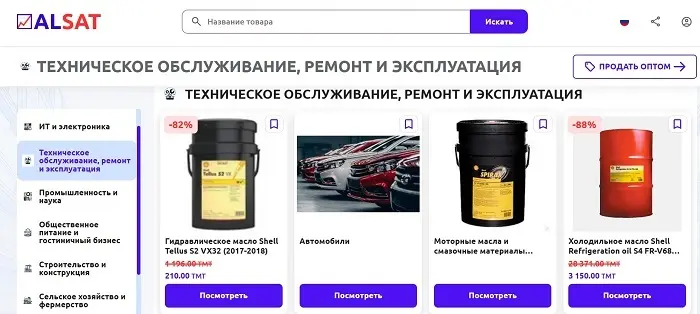
📈ALSAT: the first B2B marketplace in Turkmenistan

The private sector of Turkmenistan is developing dynamically: not only economic relations between state economic operators and entrepreneurship are expanding, but also cooperation between businesses.
The first B2B marketplace 📈ALSAT was recently launched in the country, providing a unique online platform for interaction between private companies, the Neutral Turkmenistan newspaper reports.
📈ALSAT solves the urgent problem of excess goods in warehouses. The growth of production capacity of private enterprises in Turkmenistan has led to the accumulation of unsold products, which entails losses and additional storage costs.
The 📈ALSAT platform allows business owners to:
• Promote their products at wholesale prices.
• Purchase products from other manufacturers.
• Set wholesale prices to maximize profits.
• Track current wholesale prices, opening access to new suppliers and technologies.
• Sell products quickly, stimulating production.
• Promote your business by ranking product items.
📈ALSAT guarantees compliance with agreements and timely payment for transactions.
It is noteworthy that the platform is aimed not only at large companies, but also at small and medium-sized enterprises, as well as artisans. The launch of 📈ALSAT opens up new opportunities for Turkmen artisans to sell their handmade products online.
The initiative to conduct e-commerce courses, the Academy of Craft Business, is also designed to facilitate this. This course provides all the necessary knowledge and practical tools for successfully starting and managing a business selling handicrafts through international online platforms such as eBay.
Users can learn step-by-step how to register their business, choose the optimal business model, create and set up an eBay account, design a storefront, create attractive listings, and effectively use additional resources to increase sales.
Funded by the USAID Future Growth Initiative project.
Thus, B2B marketplaces stimulate economic growth. They increase production volumes, reduce transaction costs, and provide access to new suppliers and technologies.




